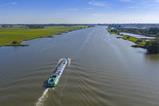Pension funds across Europe are moving quickly to sell Russian assets, effectively banning the country from investments after its military intervention in Ukraine that prompted punitive sanctions, but trading obstacles may slow the process.
The Universities Superannuation Scheme (USS) in the UK has been selling its Russian assets, approximately halving equity investments in the past several weeks, it announced.
Today, about 0.5% of the scheme’s £90bn (€109bn) assets is linked to Russia. The scheme will be looking at opportunities to sell these assets as markets reopen and liquidity returns but in the current environment and for obvious reasons, very little is trading and it is clearly difficult to predict how this will play out, it said.
Russia’s central bank has suspended trading activities on the Moscow stock exchange.
USS believes that there is a clear financial as well as moral case for divestment of Russian holdings.
A USS spokesperson said: “Like many others, we have been shocked and saddened by the events of the last few days and our thoughts and prayers go out to those suffering in Ukraine in the wake of Russian aggression.”
In the light of these circumstances, USS has placed a moratorium on new long positions taken in all Russian assets, which is over and above full compliance with UK government sanctions restricting trading in sovereign debt and other Russian assets.
“Where we are not in direct control – for pooled funds, for example – we will encourage managers to respect the moratorium, in line with our exclusions policy. Where we have existing investments, we will need to consider our position carefully in the light of trading restrictions,” the spokesperson added.
Switzerland’s largest pension fund, Publica, today announced it had excluded Russia from its pool of investments after the country’s government backed EU sanctions in response to the recognition of breakaway regions in eastern Ukraine by Russia and the following invasion.
Publica would not make any further purchases of Russian securities alongside the decision to withdraw from existing investments, in line with its principles of responsible investing, it said in a statement.
The pension assets of Publica’s members should therefore not be invested in the Russian market, it added.
Publica has invested about CHF170m (€166m) in Russian securities, including shares in state-controlled companies, and bonds denominated in US dollars and Russian roubles.
The pension fund does not invest in Ukraine or Belarus assets. Its investments in Russian securities make up less than 0.5% of Publica’s total assets.
But the decision of Russia’s central bank to suspend trading activities on the stock exchange due to sanctions imposed by the EU is an obstacle for Publica to divest its current holdings. The pension fund’s investment committee will divest its Russia assets as soon as market liquidity allows, it said.
Publica’s deputy chief investment officer, Patrick Uelfeti, told IPE that it is difficult for Publica to quickly change allocations in a portfolio.
“In the medium term, the allocation will change as a result of the measures taken by Publica to implement the sanctions against Russia, since Russia will be excluded from [our] investment universe,” he said.
Looking at the medium to longer term, Uelfeti added that “it has increased the likelihood of lower growth rates coupled with higher inflation, therefore the scenario of a stagflation is of particular importance in the ALM [asset liability management] process launched at the beginning of the year.”
Back in the UK, the BT Pension Scheme (BTPS) has cut its exposure to Russia from approximately £192m (€231m) invested assets at the end of last year to £30m at the end February, it said in a statement to IPE, adding that it will look to reduce its exposure further if market conditions allow.
Since the beginning of the year, the scheme has been in close contact with its investment managers to minimise the exposure to Russia in a “disciplined manner”, it said.
Overall, the scheme’s exposure to Russian securities has been relatively small due to governance concerns and ownership rights associated with the region, it added.
UK’s master trust NEST will also exit all its investments in Russian government bonds and Russian companies “as soon as possible” because of the situation in Ukraine, chief executive officer Helen Dean announced.
In the Netherlands, Bpf Bouw – the €78bn pension fund for the Dutch construction industry – was the first Dutch pension scheme to announce a decision to divest from it Russian assets today.
“The developments following the Russian invasion of Ukraine have resulted in the decision to exclude all Russian investments for reasons of principle,” said Bpf Bouw’s director David van As.
The fund already blacklisted Russian government bonds in 2020 after the imposition of a EU weapons embargo on the country, and will sell its remaining Russian holdings “once this is possible in a responsible manner”, according to Van As.
On 24 February, Bouw’s Russian holdings totalled some €58m – down from €160m at the end of January. The divestment decision can currently not be executed because of Russia’s ban on asset sales by foreign investors.
Van As added that the fund will “continue to monitor the impact of the current financial market volatility on our investments, as well as the consequences of the sanctions package Russia has brought down on itself”.
Read the digital edition of IPE’s latest magazine




























